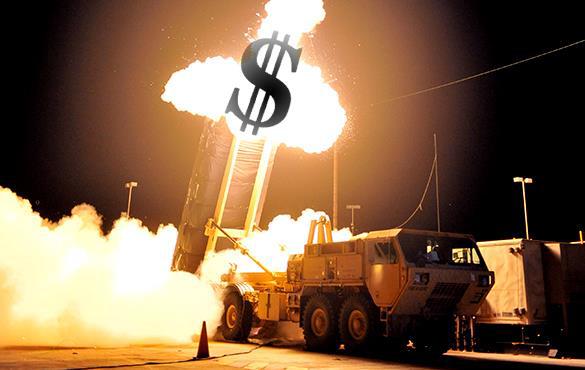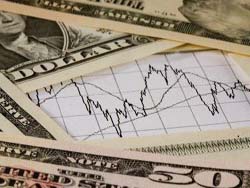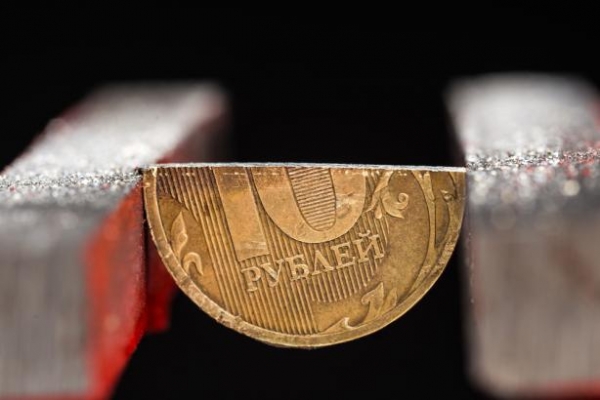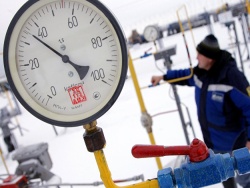March 16, shall take effect adopted by the European Central Bank (ECB) quantitative easing program, which together with the base interest rate in the Euro area decreased from 0.05% to 0%, interest rate on loans — from 0.3% to 0.25% and on deposits below from minus 0.3% to minus 0.4 per cent. Giving advantages to European producers and protecting them from competition from imported goods, the ECB at the same time, there is a risk, reducing the investment attractiveness of Europe. However, it may be in the hands of Russia, whose economy is considered to be undervalued.

Currency war is the new reality for the global economy
The desire to overcome the recession of the global economic crisis pushes the EU on the adoption of measures to support national economies. Western media have repeatedly predicted the beginning of a currency war in the world, we have a massive weakening of national currencies in pursuit of competitive advantages to encourage countries to find other ways to overcome the crisis. So, back in February, Bloomberg published an article about the use of devaluation and other methods of lowering national currencies to increase exports and stimulate the economy.
“Intentionally or not, these silent currency war still pose a danger,” noted the authors.
Start another battle of the world’s currencies linked with the sudden decision of the Chinese Central Bank announced the devaluation of the yuan due to a slowdown in its economy. Further, similar decision was made by Japan, which reduced the interest rate into negative numbers. According to Bloomberg, in 2015, a significant reduction in national survived a number of countries, in 24 of them the Central banks have eased monetary policy and lowered interest rates.
Support colleagues Bloombergи analysts from The Wall Street Journal. In their view, the depreciation of the currency — not the best way of struggle against the crisis phenomena in the economy. Rather, this policy is leading to increased volatility in the currency market, “the theft of economic growth in other countries”. The best alternative is called the experience exchange, negotiations and coordination within the G20.
Chief economist of Citi Group William Buiter also predicts world currency war.
“In the global economy, there is no leadership. And no one desires to abandon the benefits in the short term, taking advantage of ruined the neighbors via the exchange rate. Currency war becomes a reality, we will watch the next few years,” an analyst quoted by CNBC.
William Buiter also notes the high risks of continuing recession, which leads to a General impoverishment. According to experts, countries need greater emphasis on fiscal policy. However, they are not ready politically or institutionally.
What does the ECB rate cut?
First of all, the ECB’s decision affected the Euro, which fell against the dollar since the 1,0975 to 1,0836. And while the sharp drop in the value of the European currency was stopped by the statement of ECB’s President Mario Draghi that no further cuts are planned, the next day the currency’s decline continued.
While the EU has no plans to cut rates, citing the fact that in the reserve there are several other tools to keep the Eurozone economy. However, ECB officials said that their target is a two per cent inflation, so there is no guarantee that the regulator will not continue to pursue a policy in the spirit of “currency war”.
The ECB’s decision has caused a backlash of experts, who believe that the decline in rates is a negative signal. Some have called the policy of the ECB of “dangerous game”. So, investment Director CCLA Investment Management James Bevan believes that the EU will soon regret the decision of the ECB.
In addition to economic, Europe, and expected political consequences of the decision. The enthusiastic response of the Italians against the Germans of harsh criticism once again underline the deep divide between southern and Northern EU countries.
“This is a catastrophic decision for the German population. Investors are expropriated. We deal with a giant redistribution from North to South”, — quoted by Deutsche Welle the head of the Federal Association of wholesale and foreign trade Germany Anton Berner.
German experts and politicians against this background, criticized the authorities of such southern countries as Italy, that increase costs, without making any reforms.
The EU and expect negative consequences such as reduced profitability of banks.
“There is a growing fear that as the movement rates to negative consequences of monetary policy for banks are becoming increasingly adverse,” said a member of the governing Council of the ECB Benoit coeure. However, the regulator believes such risks are justified, because the priority is price stability in the region.
Will the decision of the regulator of the EU economy is still unknown. However, it is safe to say that in the intensifying currency war will be winners and losers. The only question is, who on what roles will be.
Russia in the winners
At the moment Russia in the current situation only benefits. Especially considering the fact that European monetary policy has already had a positive impact on the Russian currency. On Thursday, after the announcement of the ECB decision, the rouble has grown in relation to the European currency: the Euro on the minimum amounted to $ 75,88 rubles. Despite the subsequent adjustment, during Friday trading, the Russian currency continued to strengthen. Thus, the further unfolding currency war is likely to lead to further growth of rouble.
Adopted the ECB decision will also have a positive impact on the investment attractiveness of Russia. According to the newspaper Kommersant, for the sixth consecutive week of investment of foreign investors in the Russian economy are growing. Against the background of rising oil prices has been the strengthening of positive dynamics: this week the total investment focused on the Russian stock market amounted to 79 million dollars.
Currency war may significantly increase the investment attractiveness of the country and the ruble exchange rate and Russian Central Bank policy will ensure the competitiveness of the domestic industry. To keep financial assets in Europe are now unprofitable, therefore, it is likely that Russia will experience an investment boom. The next day after the decision of the European regulator, the media reported record volumes of purchases of Russian shares by foreign investors.
In addition, the policy of negative interest rates can have a positive impact on oil prices. On 11 March, the International energy Agency (IEA) reported that the low oil price is likely to pass. Now the oil prices, according to comments by analysts of the Agency, supported by the possibility of freezing the oil exporters, disruptions in supply from some countries and a weakening dollar. The last factor cannot be underestimated. Anyway, exchange rates have an impact on oil, in the era of currency wars, this effect will be even greater. And Russia has a chance to earn extra income.
Finally, currency wars can have a positive effect on inflation in Russia. Despite the fact that last week, the inflation showed an increase of 0.2%, the annual rate fell. Interfax cites Rosstat data, which showed that annual inflation for March 9 fell to the level of 8%. Moreover, the American experts predict Russia deflation on the back of high interest rates, budget constraints, surplus of current operations and reduce debt.
The result is that Russia is out of danger, despite the threats inherent in a currency war. The next meeting of the U.S. Federal reserve is also unlikely to have a negative impact on the Russian economy. External factors at this stage does not pose a serious threat: to some of them, the economy has adapted, others have taken a back seat. Thus, it’s time to pay attention to internal risks, especially on the background of the upcoming 18 March meeting of the CBR.








